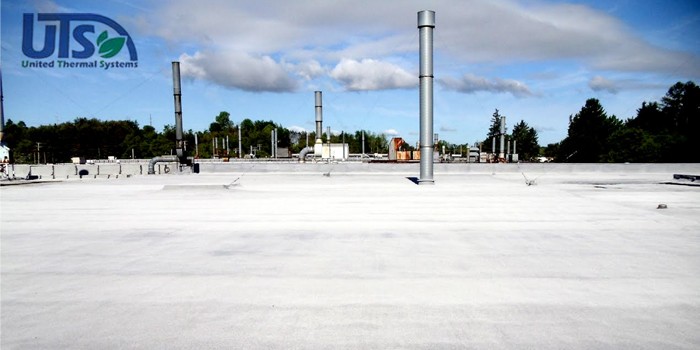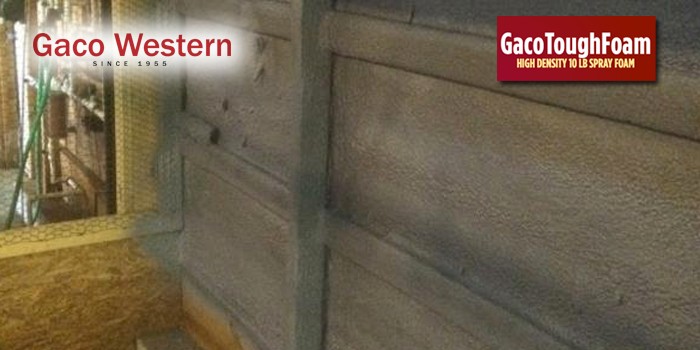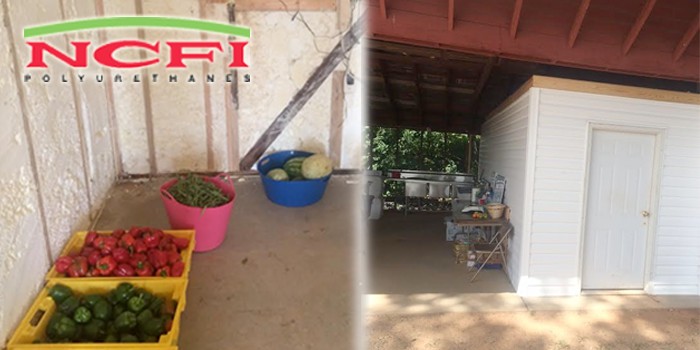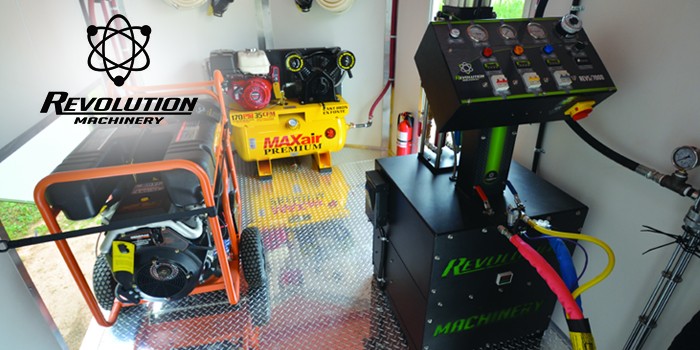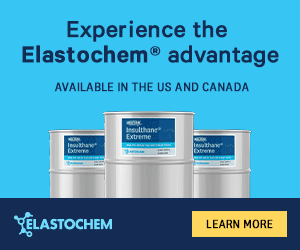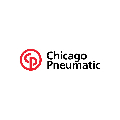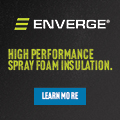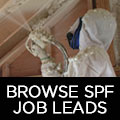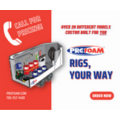NCFI's AgriThane Spray Foam Helps Cut Propane Cost Of Cage-Free Pullet Starter House
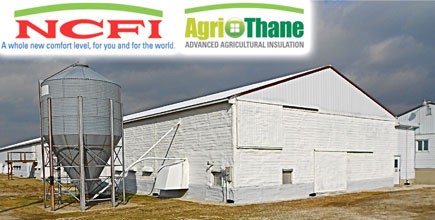
MOUNT AIRY, NC – February 19, 2013 – Experienced pullet farmers know the first three days of a chicken's life are the most critical. In colder winter climates, the right insulation for a pullet starter house can make all the difference in the profitability of raising healthy chickens. Greg Fortkamp, a third-generation poultry farmer in Fort Recovery, Ohio (where the average January low is 15 degrees, and the high is 32 degrees) used AgriThane high performance spray foam insulation by U.S. company, NCFI Polyurethanes on his 48 ft. by 305 ft. metal, cage-free pullet house to ensure more of his 30,000 pullets would survive and get the best possible start to life.
"Baby chicks are unable to thermoregulate their body temperature," said Fortkamp, whose pullets come in at a fragile one-day old. "They need a well-regulated and consistent thermal comfort zone. The temperature must be maintained between ambient temperatures of 88 degrees Fahrenheit to 92 degrees Fahrenheit and must have relevant humidity levels of 60 percent or higher. That can't be done without spray foam insulation."
According to Fortkamp, 'cage-free' pullet houses, barn structures where pullets are not kept in cages and are allowed to range freely in the space, are high maintenance.
"Cage-free allows for more comfort behavior, which is important for body maintenance such as stretching, flapping, shaking, and preening and there's more opportunity for natural stimulation, but is hard to regulate and keep consistent," he said. "Cage-free buildings require the farmer to plan well and to fully insulate and ventilate the building."
Fortkamp said he chose AgriThane for four 'great' reasons.
"I own an insulation company, Fortkamp Foam, so I've seen first-hand how spray foam comes out of a spray gun, fills every crack and crevice, and cures in place to form a monolithic building envelope. This spray-in-place insulation seals air leaks and doesn't require a separate vapor or water barrier. It allows building ventilation to work the way it was designed."
Secondly, Fortkamp added, "I know and trust NCFI. They pioneered spray foam in the 1960s, so they know their products and they know application. Their customer support for guys like me is the best. AgriThane is a great winter foam – better than any other foam I've used."
Thirdly he went on to say, "It provides excellent insulation and gives farmers better control of temperature and humidity," he said. "That greatly reduces mortality rates of pullets, meaning we end up with more healthy hens."
The final reason Fortkamp opted for spray foam was because it helped him to keep costs down. "It saves big money," he said. "We put our first group of pullets through in 2008 and we used between 700 and 750 gallons of propane. This year, in single digit temperatures, we only used 110 gallons. That's over 80 percent savings thanks to AgriThane and help from an updated ventilation system that goes right to the bottom line."
Fortkamp's father built his first layer house when his son was only one-year-old. "My grandpa had poultry houses in the early 70s on. So I'm just carrying on a family tradition," he said. "This barn was built in the 1980s as a cage layer house then remodeled in 2007 as a cage-free pullet starter house. We had some major wind damage in 2009 and that's when I decided to use AgriThane to insulate the steel siding."
About NCFI Polyurethanes: NCFI is a U.S. company headquartered in Mount Airy, North Carolina since 1964 with manufacturing facilities in Salt Lake City, Utah, Dalton, Georgia, and Hickory, North Carolina. The company has 14 distribution warehouses across the country. NCFI manufactures polyurethane foam chemical systems for high-performance spray foam insulation (InsulStar, InsulBloc, Sealite, AgriThane), roofing (EnduraTech Systems), geotechnical (TerraThane), marine floatation, packaging, specialty molding, and many other uses. The company also offers a complete line of flexible foams for furniture seating, transportation seating, bedding, carpet underlay, and packaging. For more information about NCFI, please use the contact details and links provided below.
Disqus website name not provided.





